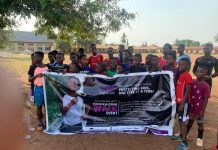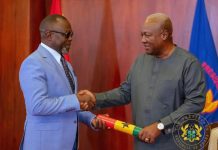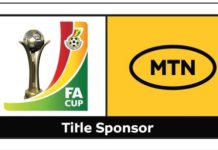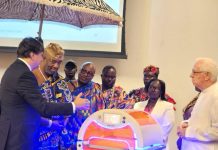Amid a report that FIFA accused Ethiopian Broadcasting Corporation (EBC) of illegal piracy of FIFA World Cup Qatar 2022 matches, Addis Zeybe learned from its sources at EBC that the national TV claims to have an agreement granting it the right to broadcast all the matches of the competition.
This has resulted in a heated controversy between the two parties, while EBC kept on broadcasting the matches despite FIFA’s alleged cautionary notice.
A Kenyan football news portal, Soka25east.com, disclosed on Nov 29 that FIFA has threatened the Ethiopian Broadcasting Corporation (EBC) with the permanent withdrawal of any FIFA rights accusing EBC of illegal piracy of the FIFA World Cup 2022 matches.
According to the report, EBC had only acquired the media rights to 28 matches for the FIFA World Cup but the Ethiopian broadcaster had repeatedly and illegally pirated the broadcast signal from a large number of matches for which “it had not acquired a valid license going against the terms and conditions in its media agreement with FIFA free-to-air license for the territory”.
EBC’s sports department official who preferred to speak anonymously told Addis Zeybe that the prior agreement between FIFA and EBC is to broadcast “all the Qatar 2022 World Cup games”. But later EBC is approached with a new deal arrangement that allows it to only broadcast 28 matches which EBC refused to accept. He said, “when this happened EBC proposed options of paying more money or its initial payment getting refunded”.
“We refused to comply with their new [28 matches scheme] because we’ve already informed the public and even got into sponsorship deals. So since we got the FIFA rights to broadcast all the matches with our first agreement, we have decided to go forward accordingly. There wasn’t anything that says ‘28 matches’ in the initial document.”
A private local radio, Tirita, came up with a report on Nov 28 that firms that dealt an agreement with EBC to sponsor the World Cup matches issued a complaint with the allegation that EBC shouldn’t have announced to televise all the 64 matches when it’s only allowed to broadcast 28 games.
Addis Zeybe’s source at EBC explained that despite the fact that EBC had signed an agreement with FIFA to broadcast the complete matches, FIFA didn’t even send the national TV the signals of the 28 matches it admitted to having given EBC the right to broadcast.
“Full payment is settled for all the matches according to the first agreement. And since we paid not EBC’s but the Ethiopian people’s money, we are obliged to broadcast the matches irrespective of the outcome and will continue to do so. We are working to resolve the disagreements though.”
Soka25east.com’s report stated that “despite FIFA pointing out the issue of the illegal breach to EBC it is said that they continued the piracy operations of the said signal”.
Tirita radio’s report also added that FIFA media rights licensees in Ethiopia have claimed that EBC violated the agreement by pirating and broadcasting the matches it is not licensed with and would report the breach to FIFA.
EBC’s official believes the dispute may not have been basically incited by FIFA as an institution but by corrupt individuals/agents in the association and is plausibly fueled by the business interests of private satellite TV broadcasters operating locally.
“Such private sports satellite broadcasters operating in Ethiopia would possibly conspire to get EBC prohibited from having full rights to air the matches. This is because if a national broadcaster is granted such rights, their local market is expected to be affected,” he said.
FIFA’s official document on media licensees for Qatar 2022 World Cup shows that SuperSport International, New World TV (Free to Air), BBC Radio Sub-Sahara, and RFI – Radio France International are licensed to broadcast the matches from FIFA while Ethiopian Broadcasting Corporation (EBC) is licensed to televise the matches from New World TV (Free to Air).
It is indicated in Soka25east.com’s news that “FIFA has threatened to exclude EBC from the FIFA Family of broadcasters such that the Ethiopian national broadcaster will no longer be permitted to acquire commercial rights from FIFA directly or indirectly.”











































